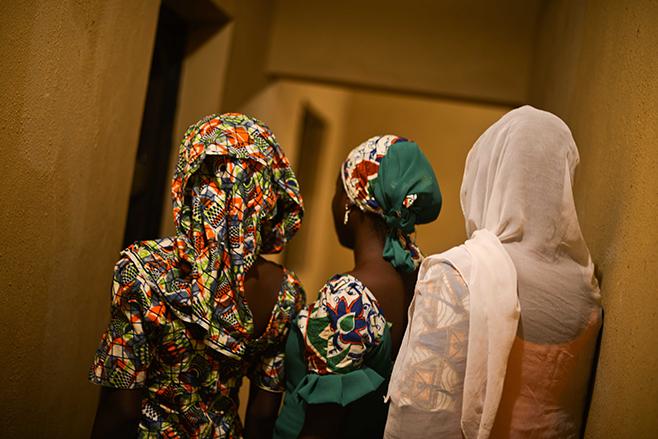GCPEA News
Girls Kidnapped by Boko Haram Share Their Stories at UN
Human Rights Watch, October 16, 2017
By Zama Neff, Executive Director, Children’s Rights Division
Only the slight buzz of translation through diplomats’ headphones could be heard as Joy Bishara, now 21, described the night in April 2014 when armed men from Boko Haram burned her school in Chibok, Nigeria, forcing Joy and her classmates into trucks so tall they had to climb on a car to scramble inside.
Silent, with phones on the table, diplomats were visibly moved.
On Friday, the United Nations Security Council held a special meeting known as an “Arria formula briefing” about attacks on schools and education, to hear from people like Joy – who was one of the 276 schoolgirls kidnapped in one of the worst recent attacks. They also heard from the top UN expert on children and armed conflict, and myself, a co-chair of a coalition working to stop these attacks.
The problem is huge: schools have been deliberately destroyed, and teachers or students killed or kidnapped in at least 28 countries where armed conflict rages since 2013, according to the Global Coalition to Protect Education from Attack. Schools are used for military purposes in at least 15 countries.
At the Arria briefing, many diplomats condemned attacks on schools. The Security Council as a whole has also condemned such attacks and encouraged countries to deter government soldiers and rebel groups from using schools.
One way to do this is endorse and implement the Safe Schools Declaration, a voluntary commitment for countries that outlines practical ways to protect education during wartime.
Since the declaration was released in 2015, 69 nations from all the world’s regions have signed up. Countries are increasingly changing their practices to better protect education in war. But only five of the Security Council’s 15 members have endorsed the declaration – missing from the list include some of the most powerful: the US, UK, China, and Russia.
Joy escaped by jumping from the moving truck and running through the bush for hours. She said it was better her parents find her “corpse in the ditch,” than risk what lay ahead with Boko Haram. Now she is studying at a university, but 113 of her classmates have not escaped or been rescued.
In two weeks, the Security Council will host its annual debate on Children and Armed Conflict and consider the most recent UN report on grave violations against children in war, including attacks on education. This would be a fine moment to endorse the Safe Schools Declaration and make schools safer for students like Joy.





